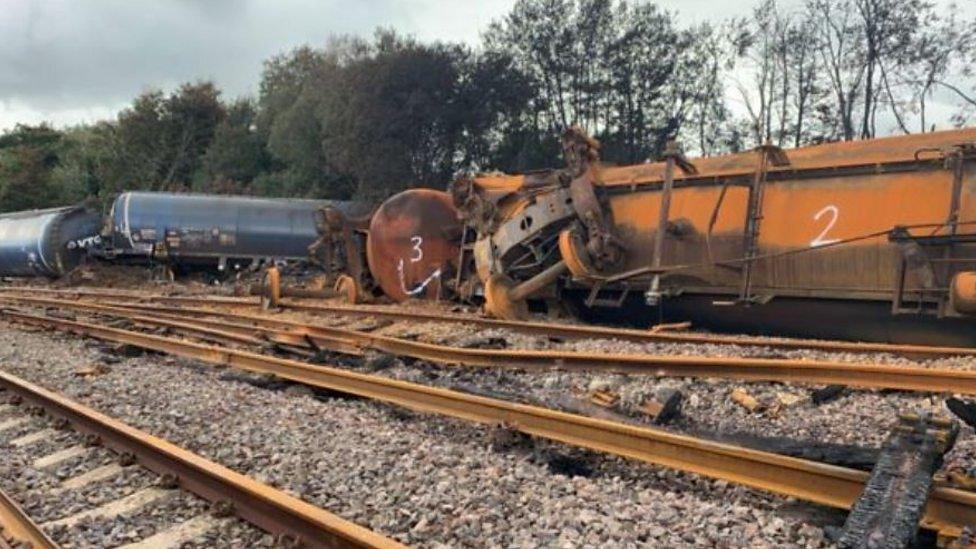Llangennech: Oil spill spreads for miles after train derailment
- Published
Llangennech train fire: Wreckage on the rail tracks
A huge clear-up operation is continuing after a train crash spilled hundreds of tonnes of oil into a wildlife haven.
Ten wagons, each containing 75 tonnes of diesel, derailed and spilled oil into the Loughor Estuary, near Llanelli in Carmarthenshire, on Wednesday.
Natural Resources Wales (NRW) said oil has now spread as far as Crofty, Swansea, about 4.5 miles (7km) away.
Cockle beds and shell fisheries have been closed after advice from the Food Standards Agency.
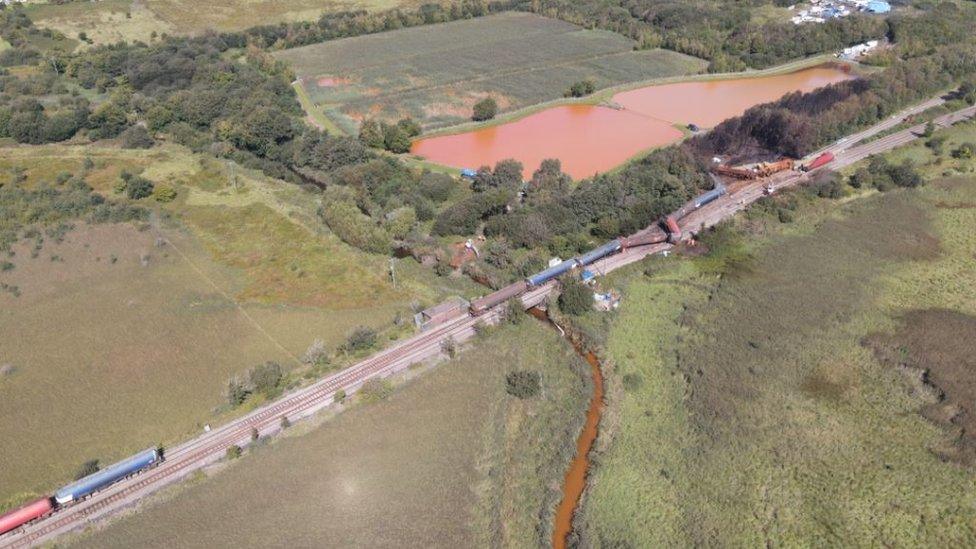
The scene of devastation could be seen from above
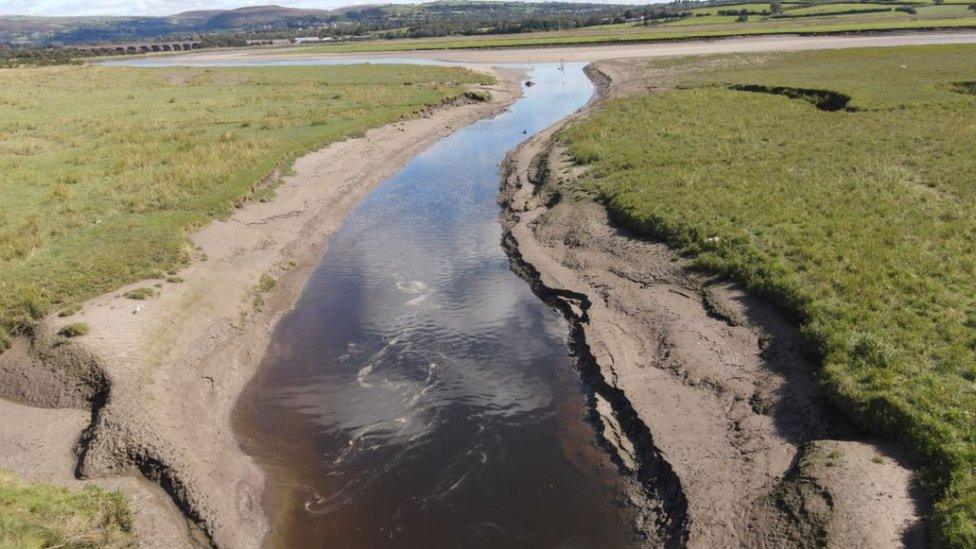
The water was dark heading into the estuary
The Loughor Estuary is part of the Carmarthen Bay and Estuaries Special Area of Conservation, and local wildlife groups have already warned it could have a "devastating impact" on the environment.
People were evacuated from their homes and a major incident was declared after a freight train carrying wagons of Puma Energy's diesel derailed and burst into flames, causing the fuel to spill into the estuary, which is a site of special scientific interest and home to wildfowl and wading birds.
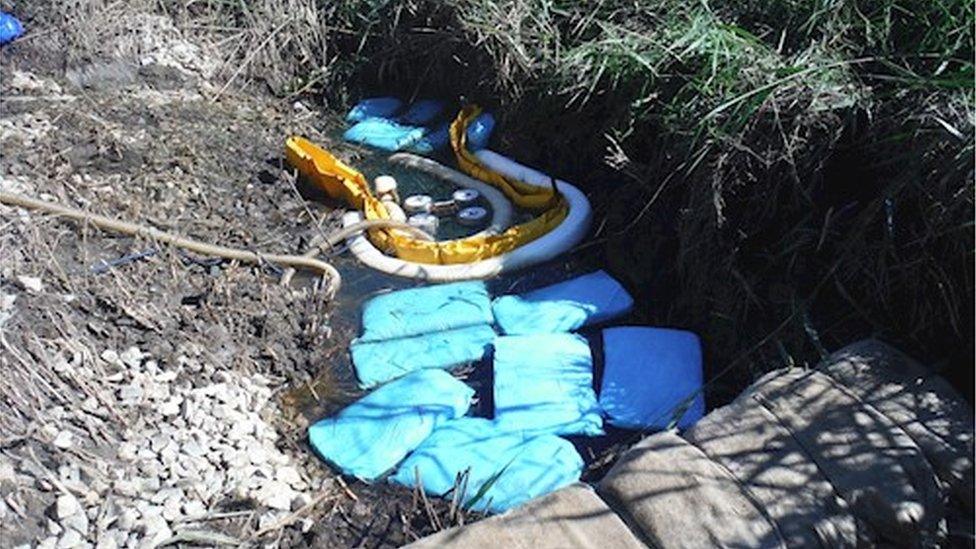
On Sunday the oil had been spotted as far away as Crofty, Natural Resources Wales said
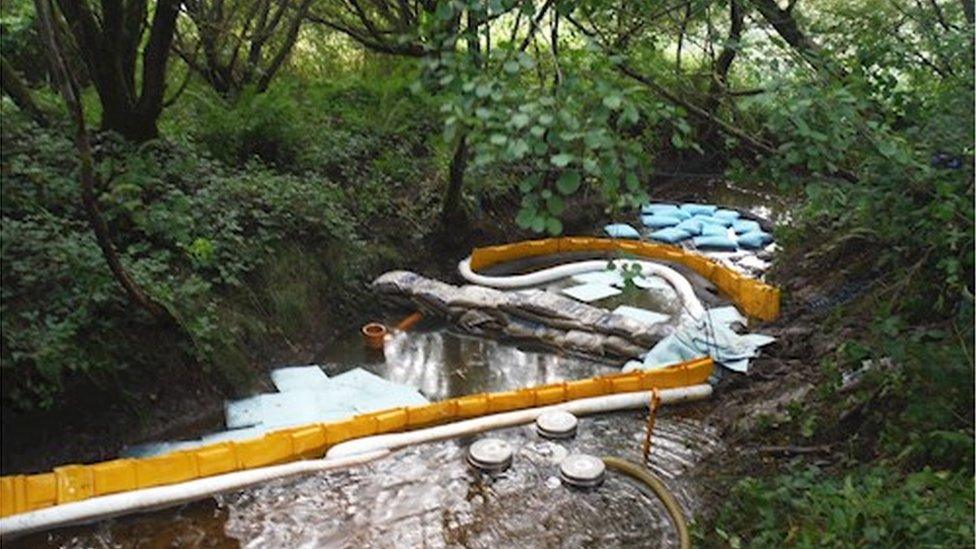
Natural Resources Wales said it was "doing everything in our power to mitigate the impacts of this incident"
NRW was not able to investigate the damage of the spill until the fire was put out, which took firefighters 33 hours.
On Saturday, NRW said the spill was "no longer confined to the upper reaches of the estuary and has been observed at many locations as far as Crofty".

On Tuesday, cranes are due to be brought in to start removing the wreckage from the tracks, with it estimated two wagons could be removed a day.
NRW said thousands of litres of fuel had already been pumped from the wagons and the surrounding area.
Over the weekend, trenches were dug and booms and absorbent pads put in place to try and contain the diesel, while "vacuuming and skimming operations" are also taking place, NRW said.
"These techniques have proved to be working well and are removing a considerable quantity of diesel from the water courses," a spokesman said.
Samples are being taken, and an environment group made up of representatives from Public Health Wales, the Food Standards Agency, local councils, government departments and wildlife bodies has been formed to respond to the incident.
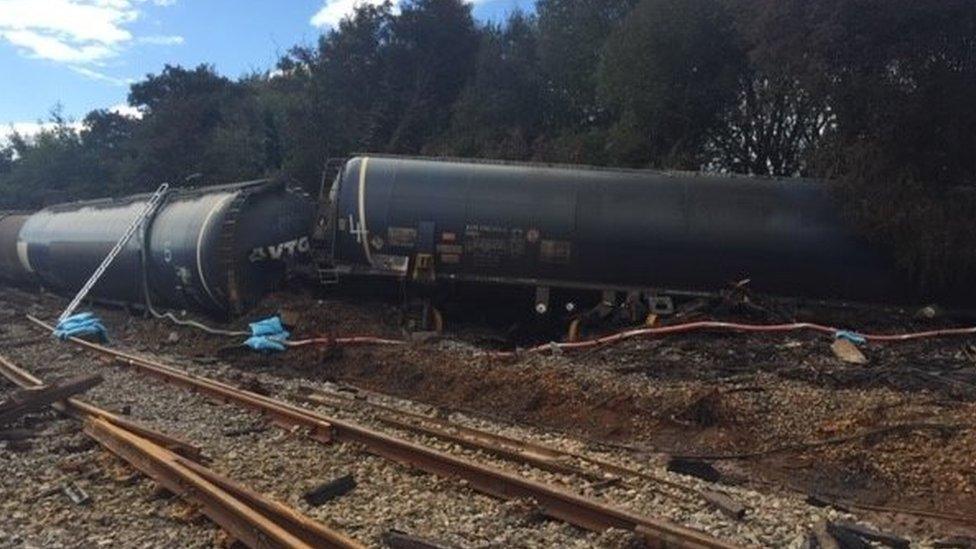
Diesel has been pumped from the wagons ahead of their removal
Ben Wilson, NRW's incident manager, said: "Our priority at this time is to work with our partners at the incident scene to contain the diesel spill and prevent it from polluting the Loughor Estuary any further.
"We also have monitoring teams out assessing the extent of the pollution. Their work will help the multi-agency Wales Environment Group to assess the wider environmental impact at sites such as the local fisheries and bathing water sites, and any effect on wildlife in the area."
The estuary is home to important shellfisheries and cockle beds, which have been closed as a "precaution" following advice from the Food Standards Agency, NRW said.
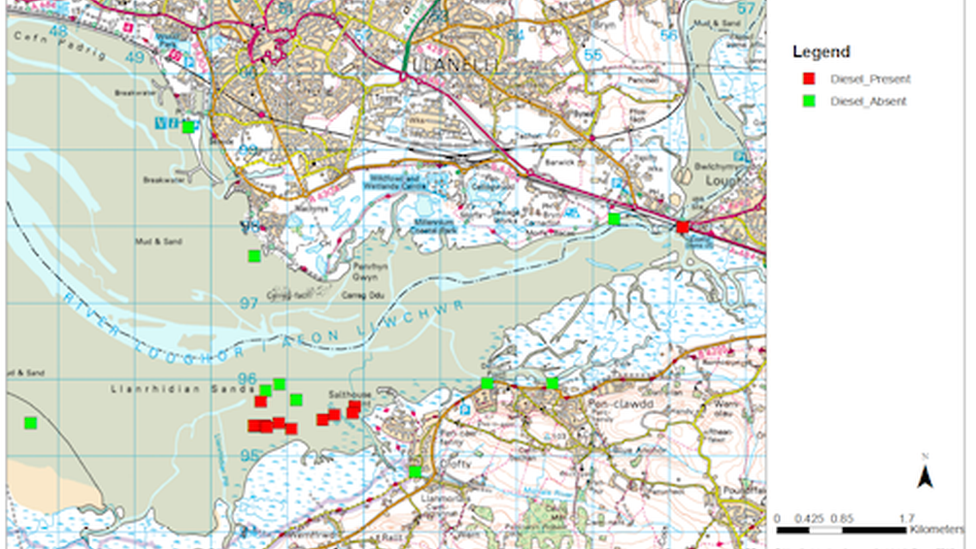
The map showing the observed presence of diesel in the Loughor Estuary on 29 August
While Public Health Wales (PHW) said it was unlikely that anyone exposed to diesel for a short period of time would have any adverse health effects, it is sensible to avoid contact with diesel or the water in contaminated areas.
Andrew Kibble of PHW said: "If anyone gets diesel on their skin, they should remove any affected clothing and wash using soap and water and if they feel unwell seek medical attention.
"We would also advise that all pets are kept out of contact with the diesel and that members of the public do not pick up any birds or other animals affected by diesel from the shoreline."
- Published30 August 2020
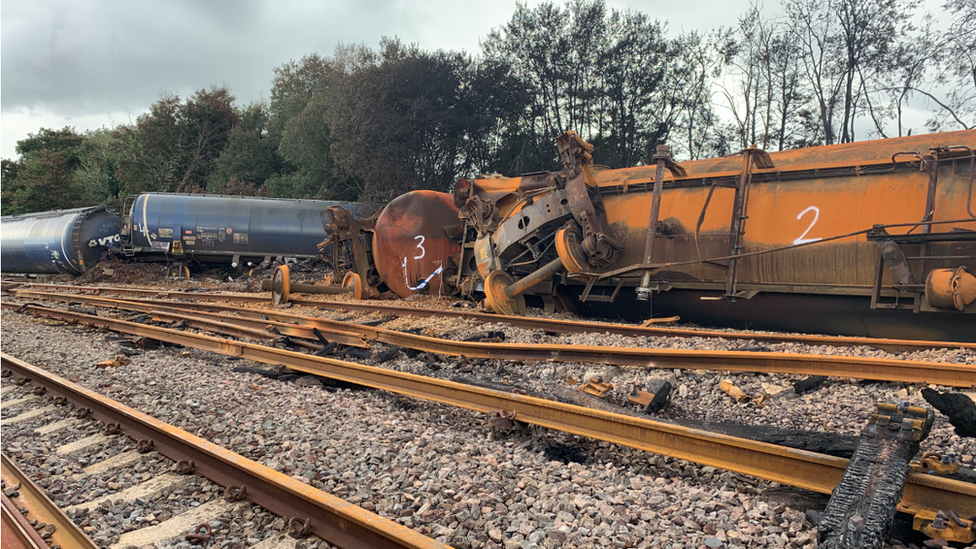
- Published28 August 2020
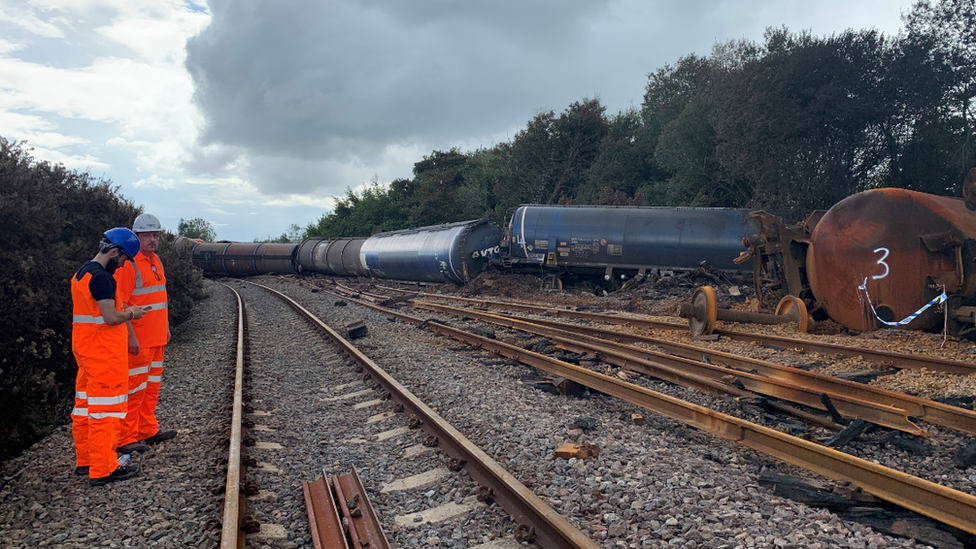
- Published27 August 2020
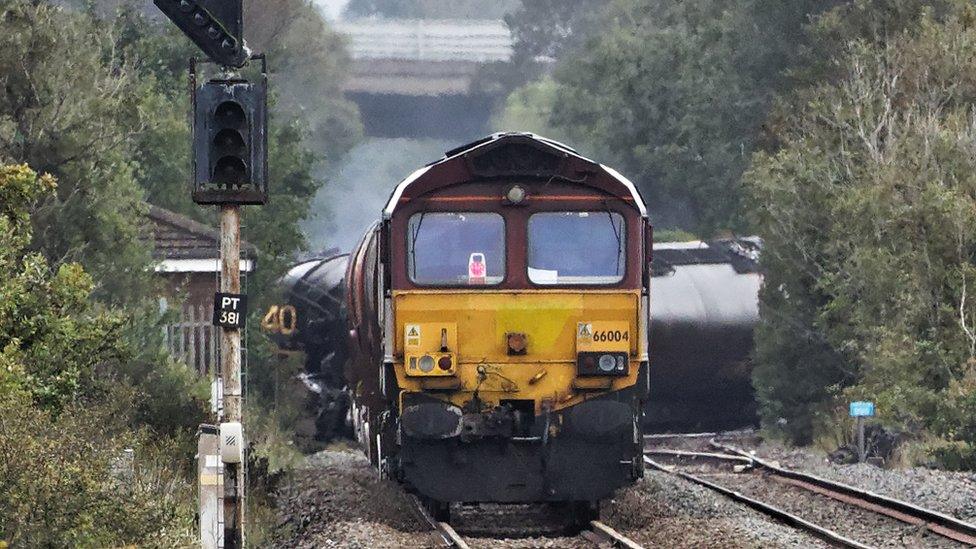
- Published28 August 2020
